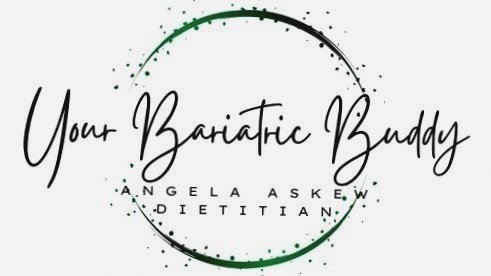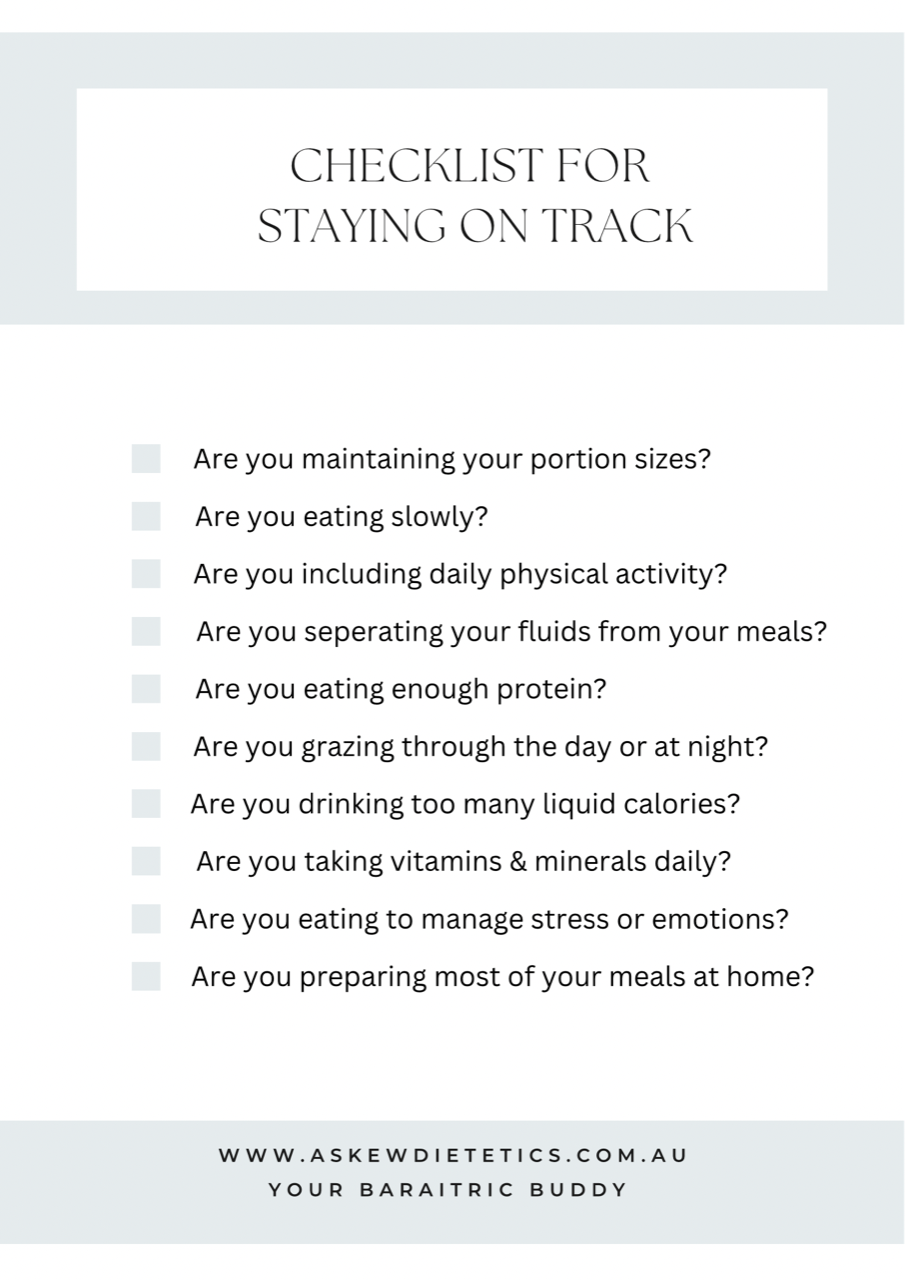The role of
the dietitian &
playing your part
So you’ve had your surgery, followed the texture modified diets post- op and back to eating normal foods…Now what?
Long-term success will involve changes to many aspects of your life and everybody’s journey will be unique.
A Dietitian can help with advice on obtaining the right nutrition through food, vitamin and mineral supplementation, eating more comfortably, getting adequate protein, managing cravings and expert tips on choosing the right meals and snacks including label reading and meal planning.
With all of this help it will still be up to you to take action on taking control of what and when you eat and how much physical activity you do.
It is important to recognise any non-hungry eating habits you have- these might be times where you eat for emotional reasons, stress, boredom or habit. We all eat for reasons other than hunger SOMETIMES but when done too often this eating behaviour can lead to weight gain.
As well as taking the time to buy and prepare nutritious meals at home it is up to you to avoid foods and drinks that we call ‘slider’ foods. These are food or drinks that pass through the new stomach easily without giving satiety and are easy to overeat with. Slider foods include high sugar drinks as well as snack foods such as chocolate, biscuits, crisps and ice-cream.
how & what to eat
after surgery
After surgery it is important to take small mouthfuls and chew food thoroughly to aid comfort and digestion and to avoid feeling overfull and stretching the pouch.
How much you eat at each meal will vary on the person and the food being eaten. As a guide people may eat around 1/2 cup in the first six months post op, and then increase to approximately 1 cup at one year. I always recommend people eat as much as they feel comfortable to eat within 20-30minutes and to be aware that how much you eat will vary day-t0day and meal-to-meal.
Eating adequate amounts of protein from foods such as lean meats and fish, dairy, eggs, legumes and lentils and nuts and seeds is vital for promoting healing after surgery and to minimse how much muscle is lost during weight loss. Protein supplements will often be needed in the first 6 months after surgery to help meet your protein targets.
More on meeting your protein targets and meal planning ideas after weight loss surgery will be posted on this site soon!
keeping the
weight off
Use this checklist to keep you on track.
More info regarding meal planning, reading food labels and following a healthy eating pattern to come!

